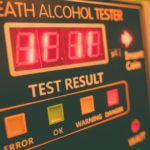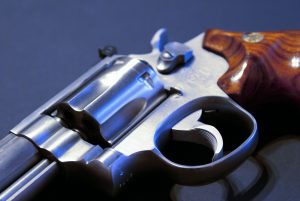 If you find yourself under arrest for driving under the influence (DUI), you will be asked to submit to a breath test, commonly known as a “breathalyzer.” Although you have the right to refuse the test, and there is no actual criminal “punishment” attached to that refusal, a longer suspension of your driver’s license will usually occur if you refuse. On the other hand, if you take the test, the results may be used as evidence against you in court, although the Statutory Summary Suspension you receive will be shorter than if you refused. The decision about whether to take the breath test or not is one of the most common questions in traffic law, and how one answers that question must be at least partially based upon the accuracy of the machine. So, how accurate are those results?
If you find yourself under arrest for driving under the influence (DUI), you will be asked to submit to a breath test, commonly known as a “breathalyzer.” Although you have the right to refuse the test, and there is no actual criminal “punishment” attached to that refusal, a longer suspension of your driver’s license will usually occur if you refuse. On the other hand, if you take the test, the results may be used as evidence against you in court, although the Statutory Summary Suspension you receive will be shorter than if you refused. The decision about whether to take the breath test or not is one of the most common questions in traffic law, and how one answers that question must be at least partially based upon the accuracy of the machine. So, how accurate are those results?
Can an experienced DUI defense attorney challenge the validity and accuracy of the breath test results? An experienced Chicago DUI defense attorney explains how a breath test machine works and why the test results are not always as accurate as the State would like you to believe.
What Is a Breathalyzer?
The term “breathalyzer” is a brand name for one of the most widely recognized machines used to test a suspect’s blood alcohol concentration (BAC). Not all law enforcement agencies use the same brand, or even type, of breath test machine. Consequently, the precise manner in which a machine arrives at a result varies; however, the basic concept in all machines is that a sample of breath is analyzed for the presence of alcohol. When alcohol is consumed, it passes down the esophagus through the stomach and into the small intestine. Rather than going through the regular digestive process, alcohol then passes into the bloodstream where it is carried throughout the body. As the alcohol travels through the body, it passes through the lungs, making it possible to test a suspect’s breath for the presence of alcohol.
 How Accurate Are Breath Test Results?
How Accurate Are Breath Test Results?
Law enforcement officers and prosecutors would like you to believe that a breathalyzer is foolproof and that the results are 100 percent accurate. The truth, however, is that the results of a breath test machine are far from perfect. In fact, several factors can cause inaccurate results, including:
- Improper test administration — Often, the test operator has not been properly trained on how to administer the test. This can result in errors such as failing to observe the required waiting period, which can skew the test results.
- Failure to calibrate the test — A breath test machine must be calibrated regularly for the results to be reliable.
- Medication in the suspect’s system — Certain medications can interfere with the results of a breath test.
- Physical injury or illness — Sometimes, a suspect has a physical injury or illness that makes completing the test as instructed virtually impossible. That, in turn, can lead to unreliable results.
- Rising alcohol level — The Rising Alcohol Level (RAL) defense argues that because of how alcohol metabolizes in the human body, the test results from a breath test do not accurately reflect what a suspect’s BAC level was at the time he or she was driving a vehicle.
Are Breathalyzers Admissible in Court?
The results of a breathalyzer, or similar breath test, are potentially admissible in court if all the required procedures were followed. But they can also be challenged if there is a reason to believe the results are not accurate.
It is important to understand, however, the difference between a Portable Breath Test (PBT) and a breathalyzer (or similar test). A PBT is administered at the scene of a traffic stop and is not admissible in court as evidence that a suspect was driving under the influence. The results of a PBT can only be used to establish the probable cause needed to arrest a motorist.
Read our guide to learn more about breath tests during a DUI arrest.
Contact an Illinois DUI Defense Lawyer Today
If you were arrested for driving under the influence and you question the accuracy of your breathalyzer results, contact experienced Illinois DUI defense lawyer at Mitchell S. Sexner & Associates LLC today by calling (312) 644-0444 or by filling out our online contact form. We’ve successfully helped drivers just like you for over 30 years.
This blog is available for informational purposes only and is not considered legal advice on any subject matter. The blog should not be used as a substitute for legal advice from a licensed professional attorney, and readers are urged to consult their own legal counsel on specific legal questions.


 How Accurate Are Breath Test Results?
How Accurate Are Breath Test Results?